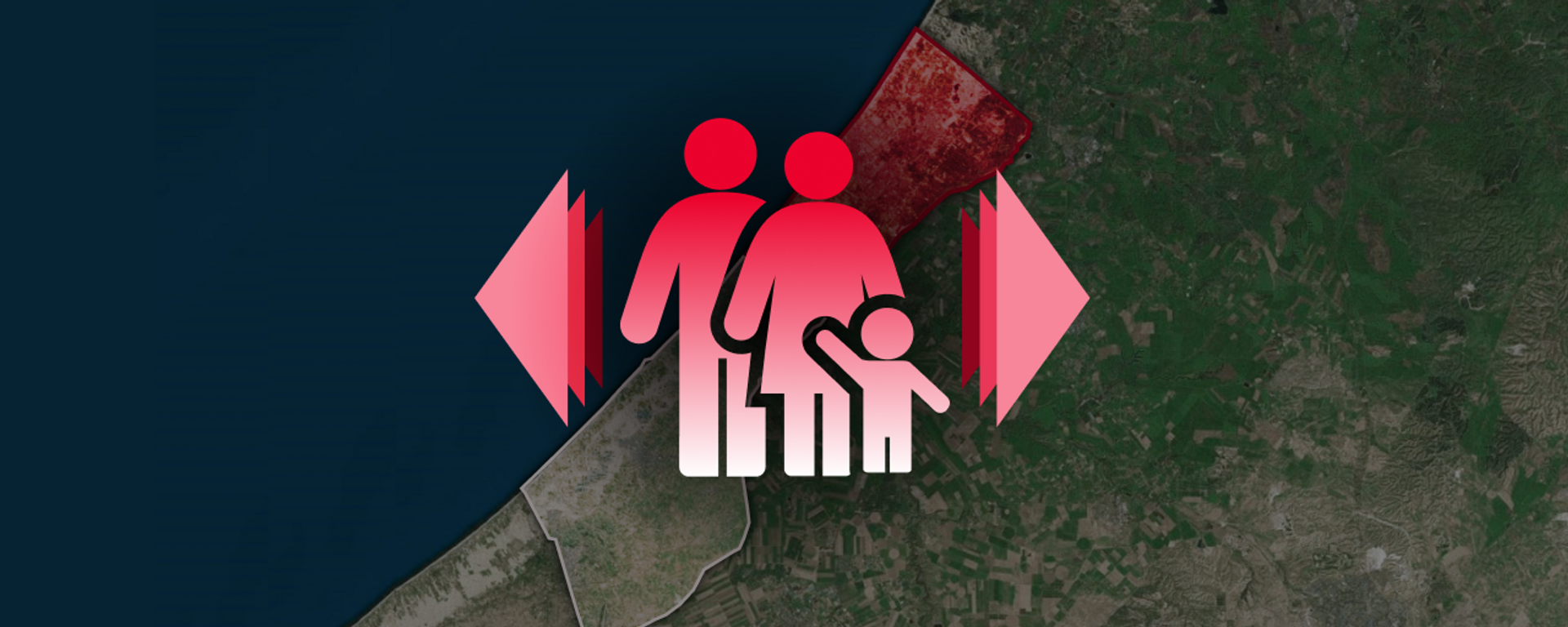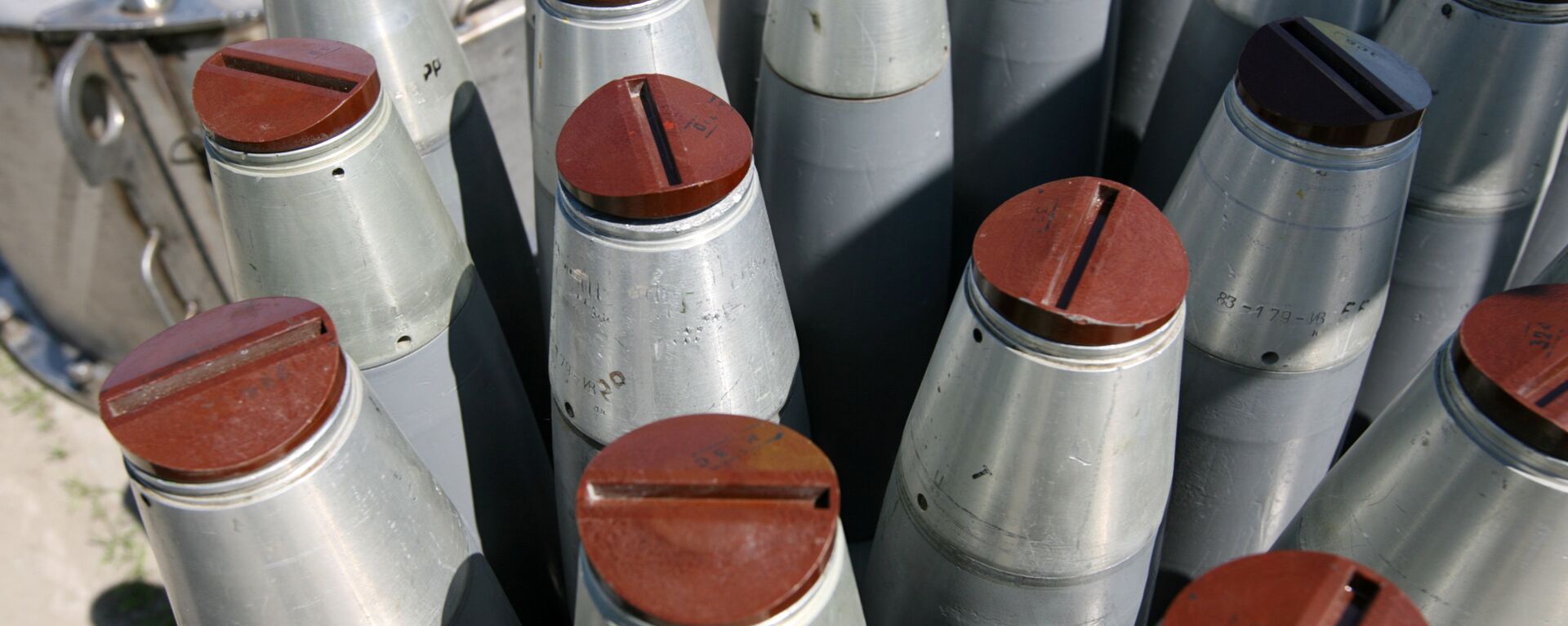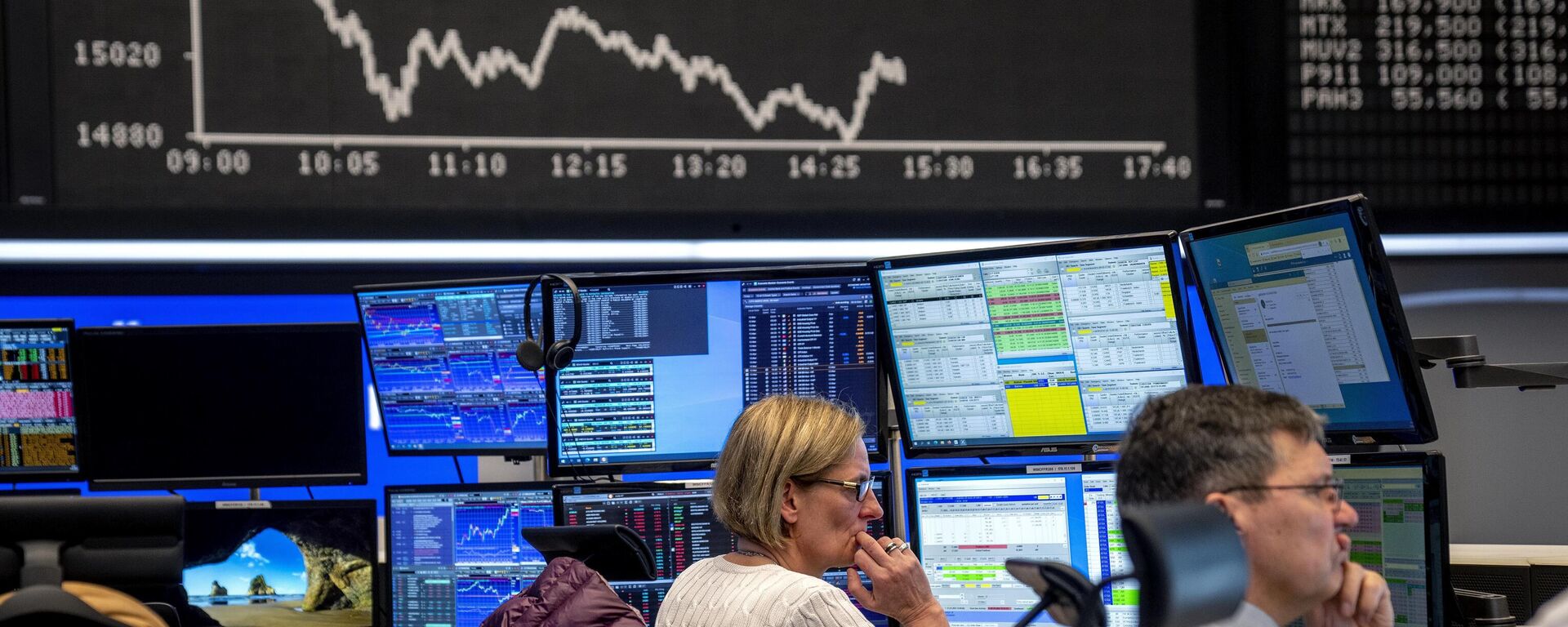Europeans Too ‘Tapped Out’ Pumping Up Ukraine Militarily to Help Israel Much
19:11 GMT 14.10.2023 (Updated: 19:15 GMT 14.10.2023)

© AFP 2023 / INA FASSBENDER
Subscribe
Hamas’ surprise decision to launch an all-out offensive into southern Israel last week temporarily took NATO’s attention off the proxy war against Russia in Ukraine, with Western countries rushing to shift resources to Tel Aviv. But for some members of the alliance, there may not be that much to give, says former DoD analyst Karen Kwiatkowski.
Washington sent an emergency package of military aid to Israel this week to beef up the Israeli military’s air defense capabilities and to allow the IDF to launch offensive operations into besieged Gaza, with a Pentagon official confirming Monday that the initial package of support included “air defense and munitions.”
“We’re surging additional military assistance, including ammunition and interceptors to replenish Iron Dome,” President Biden said in a press conference on Tuesday. “We’re going to make sure that Israel does not run out of these critical assets.”
Amid hesitation from some members of Congress to continue funding the Ukraine quagmire, the Biden administration has asked lawmakers to whip up an emergency $2 billion arms aid package for Israel which will also include additional assistance to Ukraine and Taiwan. Some Senate and House Republicans have balked at the idea of tying assistance for the three separate flashpoints together.
Washington has complemented its direct assistance by expanding its own military footprint in the Middle East, immediately deploying the USS Gerald Ford-led carrier strike group to the eastern Mediterranean, with a second strike group led by the USS Eisenhower setting sail for the region from the US east coast.
“Israel is already extremely well-armed in most areas, by its own production and development, and via regular massive US military and economic aid packages over the past several decades,” retired Lt. Col. Karen Kwiatkowski told Sputnik. “It has been noted that US aid to Israel amounts to little more than ‘polishing the armor’ of a regional ‘Goliath’, as Israel is itself the eighth largest weapons exporter in the world.”
Indeed, according to a recent report by the Congressional Research Service, the United States has provided Israel with nearly $260 billion in aid in 75 years, adjusting for inflation.
Washington’s European allies have also rushed to commit military assistance to Israel, with the German Defense Ministry agreeing to let the IDF take command of Israeli-made Heron combat drones which German troops were training to use inside Israel before last week’s escalation. Separately, German Defense Minister Boris Pistorius has announced plans to discuss an Israeli request for ammunition for warships, some of which are German-made.
“At this moment, there is only one place for Germany – the place at Israel’s side,” Chancellor Olaf Scholz told lawmakers on Thursday. “Our own history, our responsibility arising from the Holocaust, makes it a perpetual task for us to stand up for the security of the state of Israel,” he added, going on to blame Iran for supporting Hamas.
Finally, the UK has announced its own plans to send additional forces to the Middle East, deploying Royal Air Force P8 spy planes and maritime resources to watch out for efforts to send aid to Palestinian militias in Gaza, and deploying a pair of Royal Navy warships to the Eastern Mediterranean, ostensibly “to help mitigate [the] humanitarian crisis.”
Three Merlin helicopters and a company of Royal Marines will accompany the British deployment.
“Alongside our allies, the deployment of our world class military will support efforts to ensure regional stability and prevent further escalation,” Prime Minister Rishi Sunak said Friday.
Much Ado About Almost Nothing
Kwiatkowski believes there are three reasons to account for the rather modest and “cautious” European military support to Tel Aviv:
“1) The aid appears to be in the form of surveillance and potential humanitarian planning for evacuation, indicating the European sensitivity to their own populations’ concern of optics at home and abroad, concerns about possible Israeli ‘extermination’ of Gazans and a full blown taking of northern Gaza; 2) The Europeans are largely tapped out due to ongoing aid to Ukraine and economic slowdown, and 3) winter is coming, and global energy flows into Europe must not be disrupted by a major blowup in the Middle East.”
The surprise crisis has already sent energy prices soaring, with observers expecting the bump in costs to hit Europeans, who are already reeling from the shortsighted decision to cut down on Russian energy imports, especially hard, with an end to the Eurozone-wide recession now nowhere in sight.




